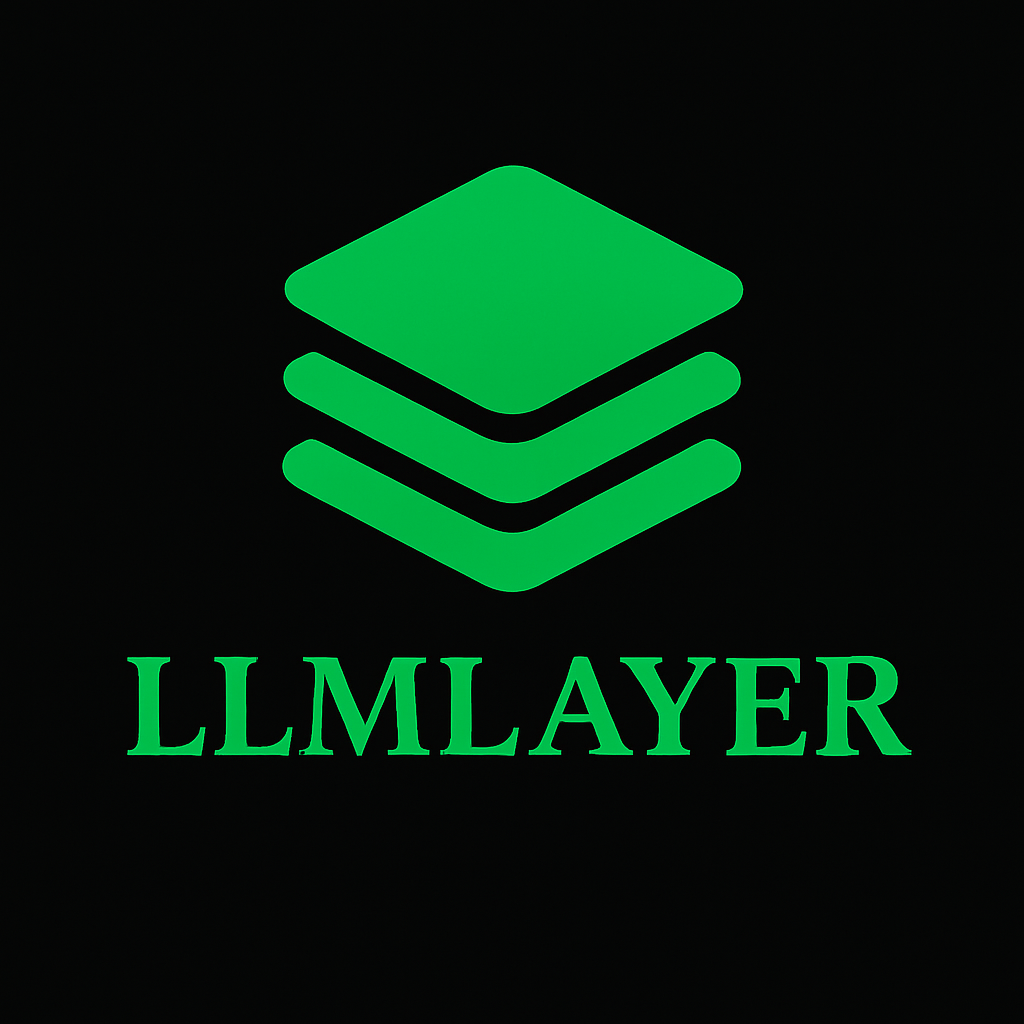API Parameters
This guide covers all available parameters for the LLMLayer search API.Required Parameters
The search query or question you want to ask. Be as specific as possible for better results.Example:
"What are the latest developments in quantum computing?"The LLM model to use for processing the search results.Supported models :
-
"openai/gpt-5"
-"openai/gpt-5-mini"
-"openai/gpt-5-nano""openai/o3""openai/o3-mini""openai/o4-mini""openai/gpt-4.1""openai/gpt-4.1-mini""openai/gpt-4o""openai/gpt-4o-mini""groq/openai-gpt-oss-120b""groq/openai-gpt-oss-20b""groq/kimi-k2""groq/qwen3-32b""groq/llama-3.3-70b-versatile""groq/deepseek-r1-distill-llama-70b""groq/llama-4-maverick-17b-128e-instruct""deepseek/deepseek-chat""deepseek/deepseek-reasoner""anthropic/claude-sonnet-4"
Optional Parameters
Include source URLs and metadata in the response. Useful for citations and verification.
- Include relevant images found during the search (when available).
- if set to
true, it’s will cost an additional 0.001 $.
Add inline citations [1] in the response text that reference the sources.
Maximum number of tokens in the LLM response. (limit is your model max tokens)
Controls randomness in the response. Range: 0.0-1.0.
- Lower values (0.0-0.3): More focused and deterministic
- Higher values (0.7-1.0): More creative and varied
Type of search to perform.Options:
"general": Web-wide search"news": Recent news articles only
Filter results by recency.Options:
"anytime", "hour", "day", "week", "month", "year"Country code for localized search results. See supported locations below.
Language for the response.
"auto" detects from query. See supported languages below.Size of the search context to use for the LLM.Options:
"low": Small context, faster but less comprehensive"medium": Balanced context size (default)"high": Large context, more comprehensive but slower and more expensive in input tokens
Format of the response.Options:
"markdown": Formatted text with headers, lists, etc."html": HTML formatted response"json": Structured JSON (requiresjson_schema)
Required when
answer_type="json". Defines the expected JSON structure.Example:Restrict search to specific domains. Useful for trusted sources.
- Example:
["pubmed.gov", "nature.com", "arxiv.org"] ["pubmed.com", "nature.com"]to include domains and add"-"to exclude domains, e.g.["pubmed.com", "-nature.com"]- Never use
http://orhttps://prefixes, just the domain name.
- Number of search queries LLMLayer should generate internally. Range: 1-5.
- Higher values may find more comprehensive results.
- each search query will cost 0.004 $.
Override the default system prompt. Use this for specialized behavior.Example:
"You are a medical research assistant. Focus on peer-reviewed sources."Your API key from your selected model provider.
- this is an option we have added to allow you to use your own keys and be charged directly by the model provider.
- sometimes we hit Rate Limits ( specially with Anthropic and Groq ), so you can use your own keys to avoid this.
-
Example:
"sk-..."for OpenAI,"sk-ant-..."for Anthropic - we support models from 4 providers (OpenAI, Anthropic, DeepSeek, Groq) and you can use your own keys for all of them.
Supported Locations
Thelocation parameter accepts country codes for localized results:
🇺🇸 us
United States
🇨🇦 ca
Canada
🇬🇧 uk
United Kingdom
🇲🇽 mx
Mexico
🇪🇸 es
Spain
🇩🇪 de
Germany
🇫🇷 fr
France
🇵🇹 pt
Portugal
🇧🇪 be
Belgium
🇳🇱 nl
Netherlands
🇨🇭 ch
Switzerland
🇳🇴 no
Norway
🇸🇪 se
Sweden
🇦🇹 at
Austria
🇩🇰 dk
Denmark
🇫🇮 fi
Finland
🇹🇷 tr
Turkey
🇮🇹 it
Italy
🇵🇱 pl
Poland
🇷🇺 ru
Russia
🇿🇦 za
South Africa
🇦🇪 ae
UAE
🇸🇦 sa
Saudi Arabia
🇦🇷 ar
Argentina
🇧🇷 br
Brazil
🇦🇺 au
Australia
🇨🇳 cn
China
🇰🇷 kr
Korea
🇯🇵 jp
Japan
🇮🇳 in
India
🇵🇸 ps
Palestine
🇰🇼 kw
Kuwait
🇴🇲 om
Oman
🇶🇦 qa
Qatar
🇮🇱 il
Israel
🇲🇦 ma
Morocco
🇪🇬 eg
Egypt
🇮🇷 ir
Iran
🇱🇾 ly
Libya
🇾🇪 ye
Yemen
🇮🇩 id
Indonesia
🇵🇰 pk
Pakistan
🇧🇩 bd
Bangladesh
🇲🇾 my
Malaysia
🇵🇭 ph
Philippines
🇹🇭 th
Thailand
🇻🇳 vn
Vietnam
Supported Languages
Theresponse_language parameter controls the output language:
auto
Auto-detect (default)
en
English
fr
French
es
Spanish
de
German
it
Italian
pt
Portuguese
nl
Dutch
ja
Japanese
ko
Korean
zh
Chinese
ar
Arabic
ru
Russian
tr
Turkish
hi
Hindi
